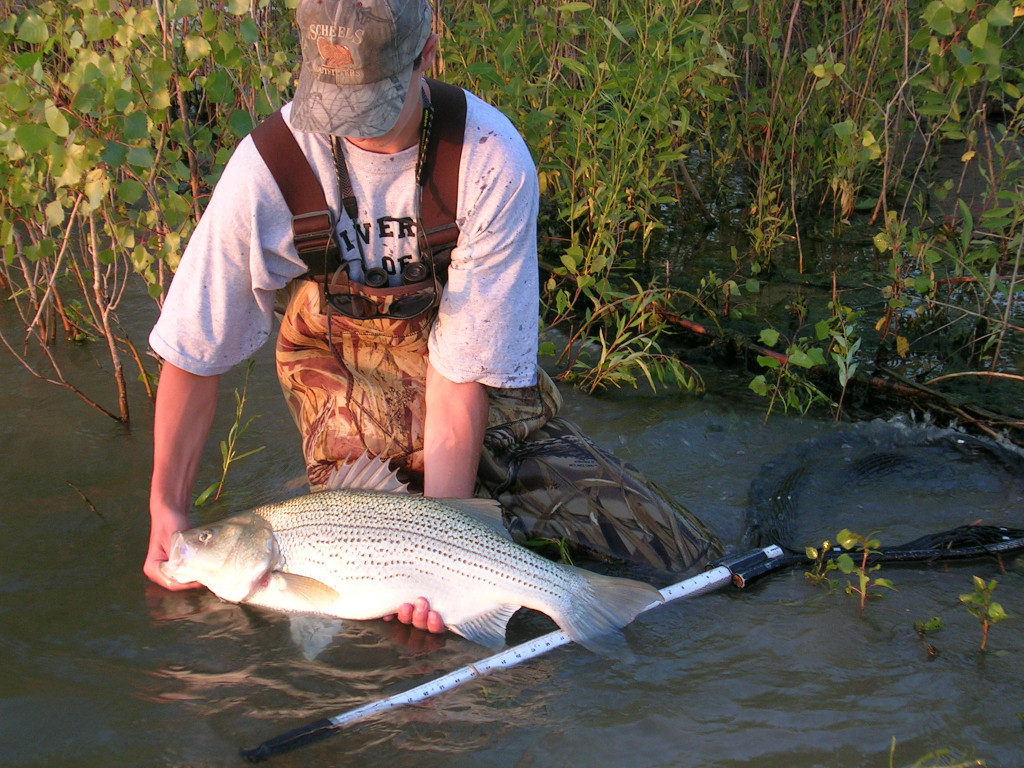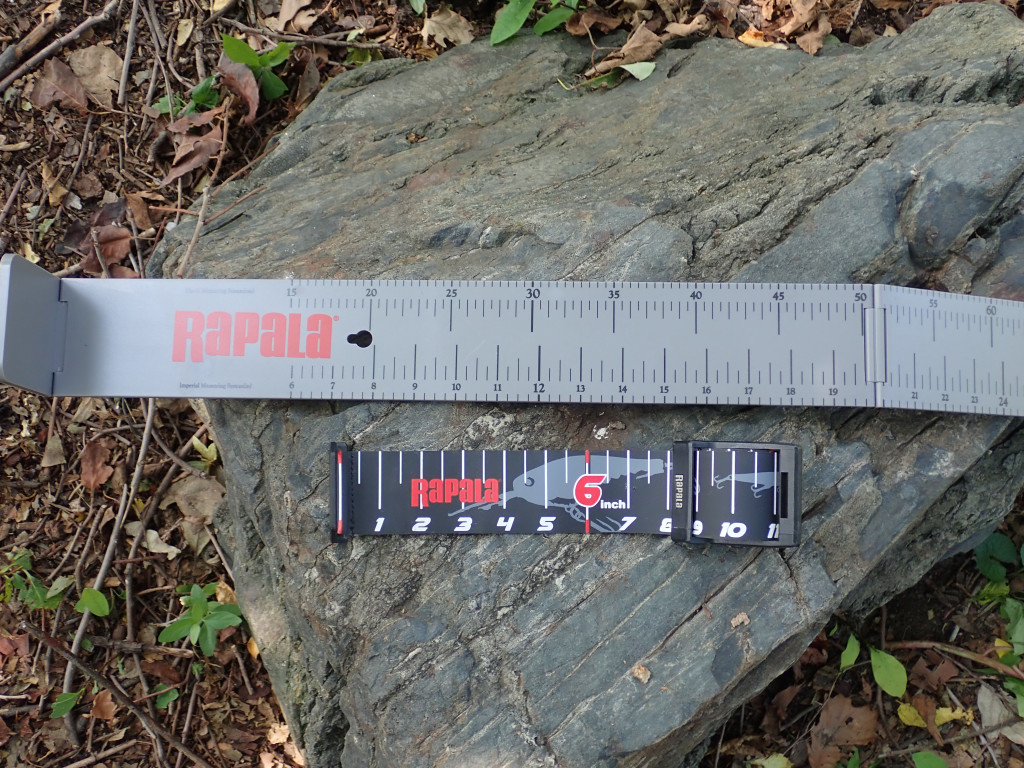
By Daryl Bauer
I own a Berkley fish scale. Have never used it to weigh a fish.
I have weighed dozens of turkeys with that scale; use it all the time during spring turkey season. As near as I can remember, it has never weighed any fish.
Now this is my choice, my preference.
On the job, in the field, as a fisheries biologist, I have weighed thousands of fish.
On the water as an angler, I really just do not need to know the weight of a fish. Do not get me wrong, size DOES matter. Believe me, I keep track, and I will tell you that if you do not measure you do not know. When I gotta know, I CHOOSE to measure the length of fish I catch. Yes, I will use those length measurements to estimate weight. I still think of size in those terms.
Why do I choose to not weigh fish I catch? Because hanging them on scales, especially vertically by the jaw or gill cover, adds additional stress and potential injuries. Weigh sacks or weighing fish in the landing net certainly keeps them in a more preferred horizontal position, but it is still additional handling and stress on the fish.
At most I measure lengths because those fish, especially large specimens, are going to be released. Simply put, a quick length measurement is less handling and less stressful on fish that are going to be released.
Do I measure the length of every fish I catch? Not hardly. Most get an eye-ball estimate before they are back in the water (if they were ever out of it). Some will be compared to known lengths on a rod, net handle, paddle, or even tattoo.
Over the years, I have carried a variety of length measurement tools. I do not know how many retractable, cloth, tape measures I have worn out.
Nothing works better for measuring the length of fish than some form of “bump board”. I have used dozens of those over the years. Some I liked better than others.
My biggest annoyance with bump boards is that they are not easy to carry around. If you are fishing in a boat, that is not a problem. On the other hand, when you spend a lot of time wading and walking, your gear has to be easy to transport.
Have toted a few bump boards that were up to twenty inches or so, perhaps extended longer. That works for panfish and most bass, but what if a person hopes to catch some larger predator fish like walleyes, or even flatheads, pike or muskies? Who wants to tote around bump boards that large?
I have discovered a couple of options recently that I am going to try out. Before I show and tell you about them, again let me say I am not sponsored by anyone. Do not receive gear from anyone, do not consider myself to be any kind of an influencer or advertiser. However, I will tell you what I am doing and what works for me. These are the length-measuring devices that I am currently trying out:

Yes, they are both Rapala products. The ruler is foldable, only 20-some inches when contracted. Tape is a retractable cloth tape, but much more robust than ones from the fabric store. Both will extend long enough to measure a muskie as long as a picnic table which is what I intend to catch.
Let me finish by again saying these are my preferences. My big fish, regardless of species, are going to be released. I may want a length measurement to know how big they were. Overwhelmingly, my goal is to handle them as little as possible. Keep them in the water as much as possible. Release them back in the water from which they came as soon as possible.
And then catch ’em again later when they are even bigger!
